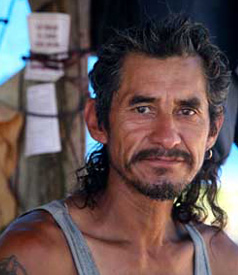Support justice-driven, accurate and transparent news — make a quick donation to Truthout today!
A photodocumentary project on the reality of life today in California’s Central Valley
Near Reedley, on the east side of the San Joaquin Valley, three men live in a camp they’ve built under the trees of an abandoned orchard. A blue tarp and the cardboard from an unfolded carton make up the roof. The mattresses for their beds sit on shipping pallets, or nearby under a bush. One of the men made a doll of straw, which sits in the branch of a dead tree overlooking the camp.
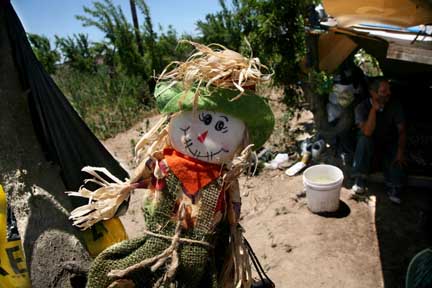
Humberto comes from Zihuatanejo in Guerrero. Pedro, who wears an earring in his ear, comes from Hermosillo in Sonora. Ramiro comes from a tiny town in the Lancandon jungle of Chiapas, about halfway between Tapachula on the coast, and Palenque, the site of the Mayan ruins.
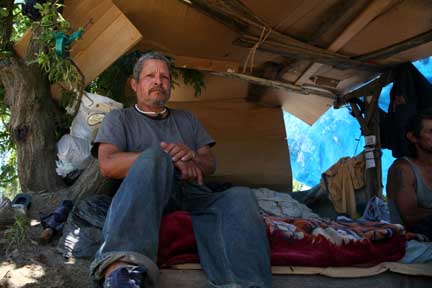
None of the men have worked more than a few days in the last several months. The riteros (people with vans who give workers rides to the fields to work) won’t pick them up, because they say they live with the vagabundos (vagabonds). The men use bicycles for transportation.
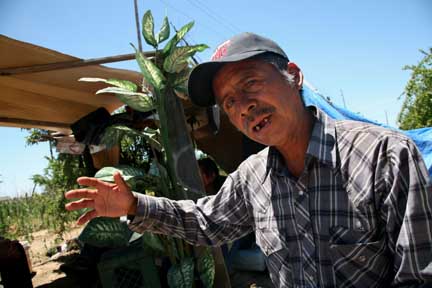
The three would send money home to their families if they could, but they don’t even have enough to pay rent, which is why they’re living under the trees. The rancher who owns the land has abandoned the orchard where they sleep. A number of other fields in the area are also abandoned.
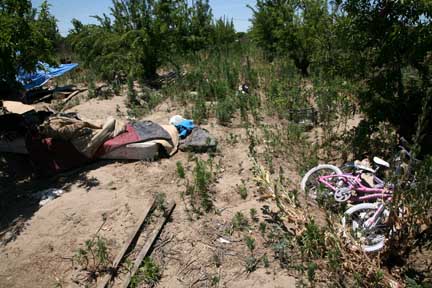
The camp used to be located in another orchard nearby, but the workers were burned out. Nevertheless, one man hasn’t moved, and sleeps under a tree in the old camp in the middle of the day, since he, too, has no work.
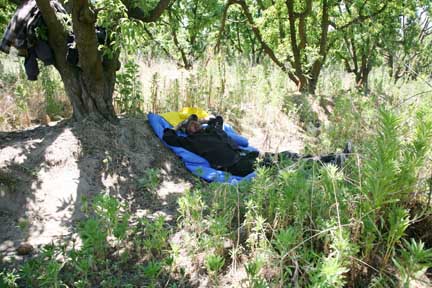
Not far away, Erica lives with two brothers, Fernando and Vladimir, in a plywood shack they’ve built next to a field of lemongrass and another field of abandoned trees. Surrounded by dogs and puppies, their shack is tiny, with enough room for only a mattress. They also have no work, and during the day work on a jigsaw puzzle with a religious image.
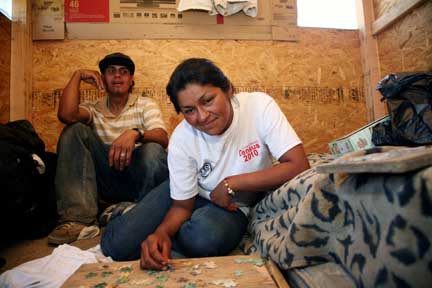
This trio also used to live under the trees. After telling the rancher when strangers had robbed lemongrass from his field, he gave them permission to build the shack on his land, and told the local sheriff not to bother them.
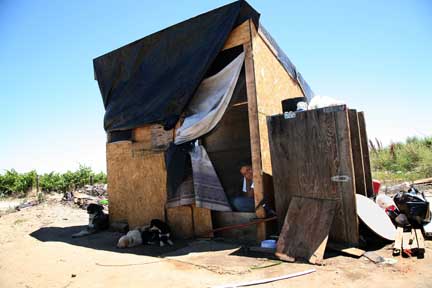
Fernando and Vladimir come from Zihuatanejo in Guerrero. Erica was born in the U.S., but her parents are indigenous Huichol migrants from the sierra in Nayarit. Erica wears a U.S. Census t-shirt, and Vladimir a Census cap, given them by Jorge Sanjuan, a Census outreach worker who finds people living in informal encampments, and who makes sure the Census counts them.
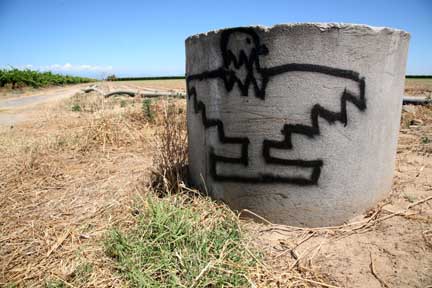
At the edge of a field next to the shack someone has painted the Aztec eagle symbol of the United Farm Workers union on a concrete irrigation drainpipe.
Press freedom is under attack
As Trump cracks down on political speech, independent media is increasingly necessary.
Truthout produces reporting you won’t see in the mainstream: journalism from the frontlines of global conflict, interviews with grassroots movement leaders, high-quality legal analysis and more.
Our work is possible thanks to reader support. Help Truthout catalyze change and social justice — make a tax-deductible monthly or one-time donation today.
